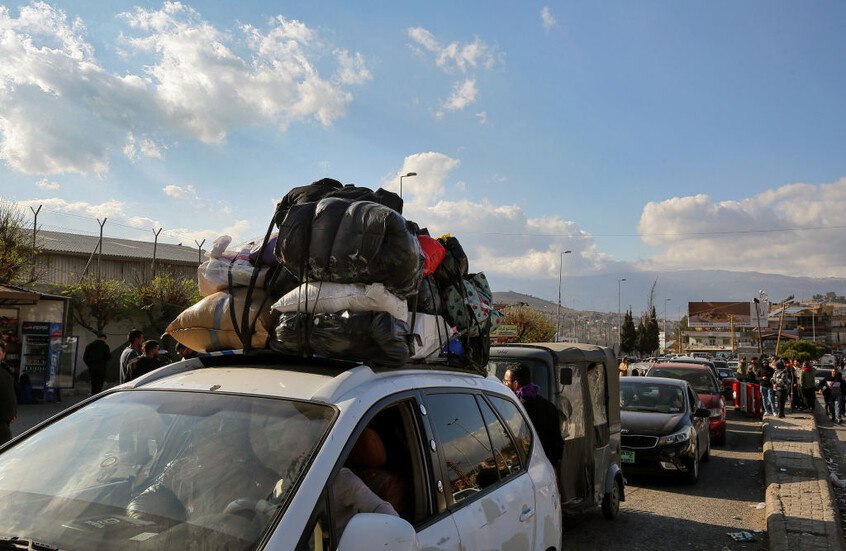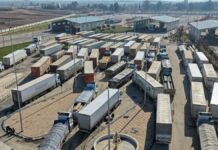
Mazen Aloush, Director of Public Relations at the General Authority for Land and Sea Ports, confirmed that Syrian border crossings have recorded the return of more than 425,000 citizens from neighboring countries and tens of thousands of expatriates since the liberation.
In a statement to SANA, Aloush said that from Dec. 8, 2024, to June 8, border crossings received large numbers of returnees from Lebanon, Jordan, and Iraq as part of the voluntary return process. Aloush revealed that work is underway to open a permanent trade route between Syria and Lebanon via the Arida crossing after the Eid al-Adha holiday. This effort includes completing infrastructure preparations and fully rehabilitating service facilities at the crossing.
He stated that, in line with government directives to ensure a dignified and safe return for Syrians, returnees from Lebanon are allowed to bring their household furniture and personal belongings without incurring customs fees, provided they present documents proving ownership. The land border crossings connecting Syria with Lebanon include Jdeidet Yabous, Jousiyeh, and Arida.
Lebanon Launches Multi-Phase Plan for Syrian Refugees’ Return
Lebanese Deputy Prime Minister Tarek Mitri announced that a ministerial committee completed a multi-phase plan for the return of Syrian refugees. Mitri noted that a significant number of refugees “have expressed their willingness to return,” according to a survey conducted by the United Nations High Commissioner for Refugees (UNHCR).
He added that the Syrian government, does not oppose returns, and indicated that the Lebanese General Security will exempt departing Syrian displaced persons from fines related to expired residency permits, provided they do not return to Lebanon.
UNHCR to Cease Medical Support for Syrian Refugees in Lebanon
The UNHCR announced it will stop covering medical costs for Syrians in Lebanon by the end of 2025 due to a severe funding shortfall. The agency views the current situation as an opportunity for a larger number of Syrians to consider returning home or at least beginning to think seriously about it.
Abu Khalid, a UNHCR representative, revealed that the agency and its humanitarian partners have developed a joint action plan for voluntary return, aiming to assist around 400,000 Syrian refugees, including 5,000 Palestinian refugees who came from Syria, in their voluntary return during 2025.
Lebanese Prime Minister Nawaf Salam reaffirmed that Lebanon is coordinating with the international community to facilitate refugee returns.
In a speech at the Rebuilding Lebanon: Investment Framework and Business Opportunities conference, Salam stated, “We are working with the international community to ensure the safe return of Syrian refugees.”








